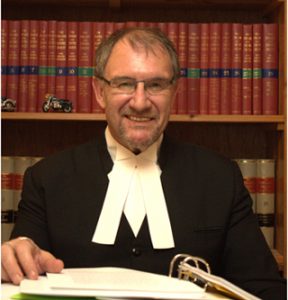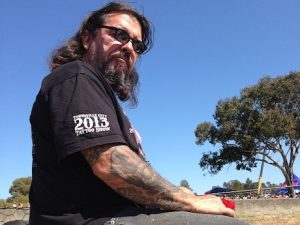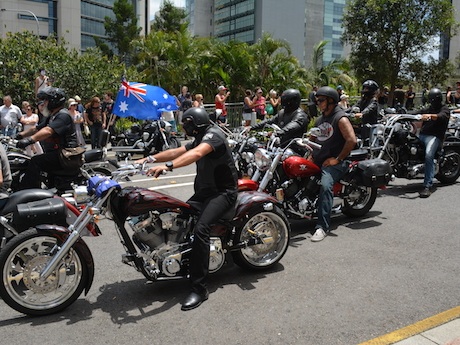The High Court of Australia has rejected an appeal against Queensland’s “anti-bikie” laws, including the Orwellian Vicious Lawless Association Disestablishment (VLAD) Act. However, more challenges to the laws are expected to be mounted.

The man who drafted the appeal against Queensland’s draconian “anti-bikie” laws says it will take some time to distill the long and complex verdict. Honorary legal counsel for the United Motorcycle Clubs in Queensland and NSW, Barrister Wayne Baffsky, says the court found that the appeal was hypothetical because the applicant, Hell’s Angel member Stefan Kuczborski had not been charged.
“It’s very very disappointing,” he says. “There will be further challenges for certain against the VLAD ACT. Where we don’t have standing there will be challenges by people who do have standing. I can’t elaborate at the moment, but it isn’t over.”
The case was “Kuczborski v. The State of Queensland” (Case No. B14/2014). The UMCQ applicant, Stefan Kuczborski, is in Europe and not available for comment.

United Motorcycle Clubs of Queensland (UMCQ) spokesman Mick Kosenko says the challenge was “a total waste of time and money”.
“They didn’t even study it and said it was all hypothetical,” he says.
Little Mick, who owns and runs the Koolsville Studios tattoo shop at Brendale in Brisbane’s north, says he is not sure what the next step would be, but they may return to the High Court for a further appeal.
The appeal cost the UMC $1.2 and so far they have raised more than $1m from donations including cash and kind from motorcycle companies and international pledges.
A summary of the ruling says: “Today the High Court, by majority, rejected a challenge to the validity of certain provisions of the Criminal Code (Q) and the Liquor Act 1992 (Q).
“The Court also held that the plaintiff lacked standing to challenge the Vicious Lawless Association Disestablishment Act 2013 (Q) (“the VLAD Act”) and certain other provisions of the Criminal Code and the Bail Act 1980 (Q) introduced by the Criminal Law (Criminal Organisations Disruption) Amendment Act 2013 (Q) (“the Disruption Act”).
“The plaintiff had not been charged with, and did not suggest that he had committed, or intended to commit, any offence.
“Accordingly, no restriction was imposed upon the plaintiff’s freedom of action by the VLAD Act, the new penalty provisions of the Criminal Code or the new provisions of the Bail Act.
“The High Court unanimously held that the plaintiff lacked standing to seek a declaration that those laws were invalid.
“The plaintiff argued that the laws creating the new offences in the Criminal Code and the Liquor Act impermissibly enlisted the court to give effect to the Parliament’s or the executive’s intention to destroy criminal organisations.
“This argument was not accepted. The majority of the Court held that these laws did not require the courts to proceed otherwise than in accordance with the processes which are understood to characterise the exercise of judicial power.”
HIGH COURT JUSTICES









